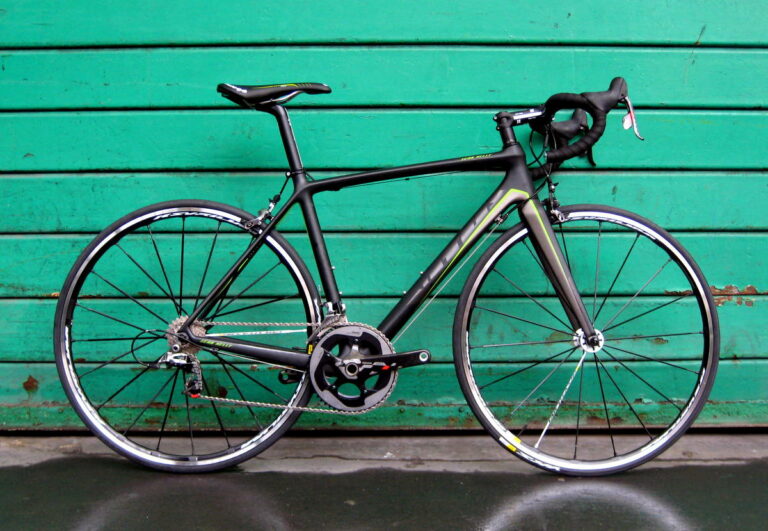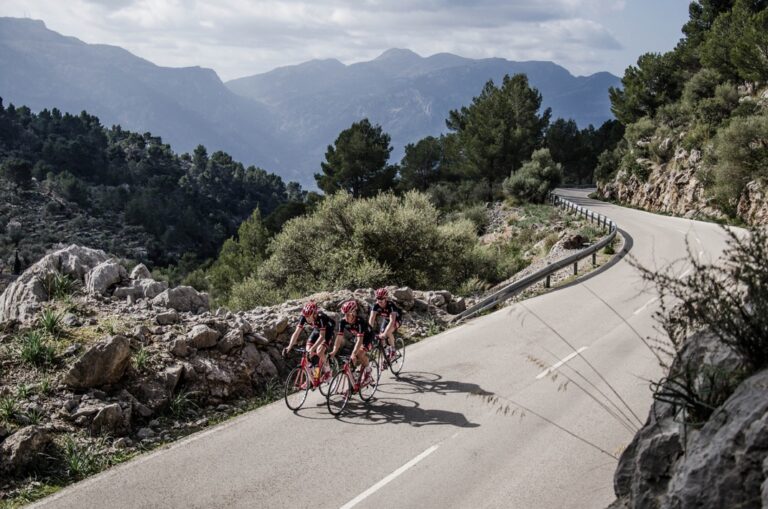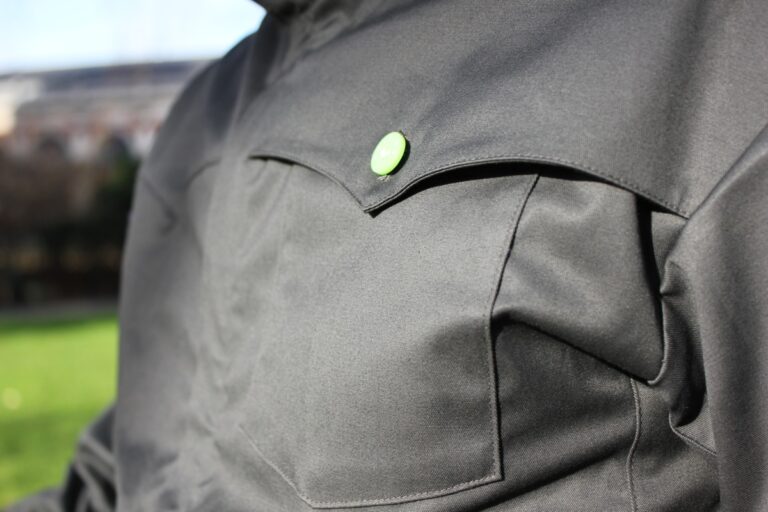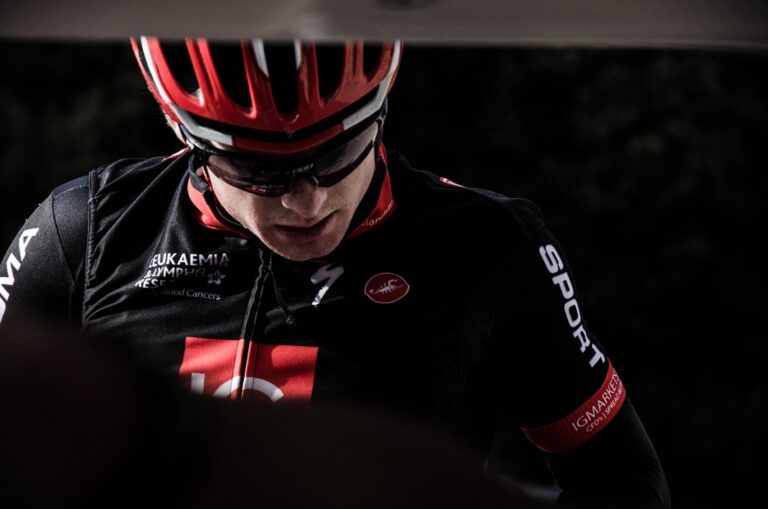That British Cycling appears to be operating a conveyer belt of talent at its vaunted Academy is an observation frequently made.
A system that has moulded Mark Cavendish, Geraint Thomas, Laura Trott, Ed Clancy, and Jason Kenny, among others is now shaping Callum Skinner, a 20-year-old from Edinburgh, the reigning British sprint champion, who headed to the city’s Meadowbank track after watching Sir Chris Hoy winning gold for Scotland in the kilo at the Commonwealth Games in Melbourne in 2006.
Skinner was unfortunate to miss last Saturday’s final round of the Revolution series through illness, after a strong showing at the previous round saw him outqualify Olympic medal-winning team-mates from the Team GB squad, and beat Germany’s Robert Förstemann, the rider with the most famous thighs in cycling, in the semi-final of the men’s sprint.
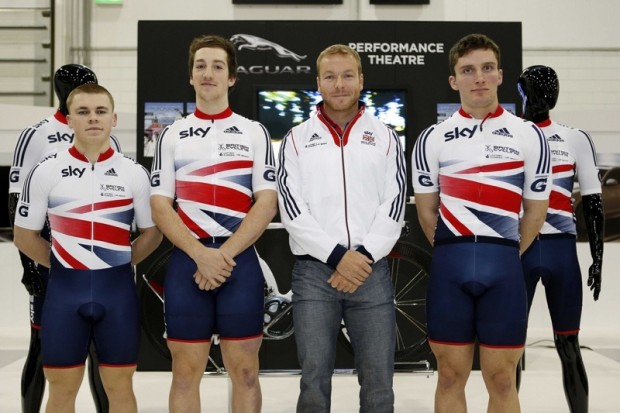
His major focus for 2013 will be the European under-23 track championships in July where it’s possible he could race in a team sprint line-up with Olympic gold medalist, Philip Hindes. With Team GB, if not at a cross roads, then beginning to witness the departure of some of the brightest stars of Sydney, Athens, and Beijing, eyes are turning to a new generation, among whom Skinner holds a place in the front rank.
Two visits to the Meadowbank track by the newly-crowned Commonwealth champion gave Hoy the status of ‘accessible hero’ in the eyes of the young Skinner. While hero worship has turned to respect as the pair have become team-mates, Hoy’s accessibility, and that of the vastly experienced Craig MacLean, silver medalist at the Sydney Games in 2000, continues to impress Skinner.
His formative cycling experiences at Meadowbank produced an instant love affair with speed and the certain knowledge that he would be a sprinter. As he has matured, his pleasure in the sprint comes as much from its ability to offer ‘hard numbers’ as a measure of progress as from velocity. Road riding places a greater emphasis on measuring performance against other riders, he reasons; a quality whose appeal he clearly finds limited.
Still only 20, Skinner’s career has followed a steep trajectory, and for the most part has been conducted under the auspices of British Cycling. He was enrolled into the Talent Team in his second year of competition, and moved to Manchester to train with the vaunted Academy two years ago, shelving a university place in Dundee to concentrate on training with the world’s most successful track cycling squad. Membership of such an elite set-up brings opportunities, he concedes, but also responsibilities. An onus is placed on athletes to make the most of the services placed at their disposal, says Skinner: to “knock on the doors” of a range of support staff from physios to psychotherapists, all of whom he describes as “world class in their field”.
Given the Academy’s combination of science and hard work, it’s surprising to hear Skinner reveal that the greatest lesson of his early days in Manchester was to consume enough calories to fuel the prodigious workload. His traditional breakfast of a single Weetabix and perhaps a boiled egg has since been replaced by three scrambled eggs, two slices of toast, a smoothie, a large bowl of porridge, and a banana. Chicken breast dominates his dinner menu. “A lot of the time is spent training, a lot of the time is spent eating enough food, which is a lot more time consuming than you think,” he says.
When we speak, Skinner is preparing to return to Manchester and begin a training cycle whose ultimate intention is to allow him to “hit the summer, hard”; specifically, the European Under-23 track championships. In dreary February, however, his days will be filled with road sessions of up to three hours, and two gym sessions a day.
The biggest event to date of Skinner’s young career has been the 2010 Commonwealth Games in Delhi, where he finished fourth in the team sprit. He left the 2011 European Under-23 championships with two medals: a silver in the men’s team sprint and a bronze in the men’s sprint. Competing at senior level, however, holds no concerns for him. Well-schooled in the British Cycling philosophy, his focus is, he says, on the process rather than the outcome, and his preparation does not change, regardless of the rider with whom he shares the boards.
Förstemann will attest to the lack of impact that reputation has on Skinner. At Revolution Three in January, the German, his country’s representative in the sprint at London 2012, met Skinner in the semi-final of the men’s sprint. The 20-year-old Brit made short work of his more experienced competitor and progressed to the final, where the challenge of Frenchman, Francois Pervis, winner of each of his qualifying rounds, proved too great. Skinner, however, was pleased with his evening’s work, which as well as beating Förstemann, included out-qualifying Great Britain team-mates, Matt Crampton, Hindes, and MacLean.
Skinner talks again of following a process, and adopting a clinical approach: one person at a time, refusing to be intimidated by new opponents. He also speaks, modestly, of the advantage held by the young rider with a reputation still being forged. “Sometimes you almost have an advantage coming in, especially with good form, and facing riders who have been around for quite a while and don’t really know who you are yet,” he says. “You can usually take them by surprise with that kind of first time advantage.”
Skinner was a spectator at the Olympic Games in London, but one highly informed; an advantage to the member of Parliament to whom he’d been detailed and to whom he was able to point out that Victoria Pendleton would be relegated from a round of her sprint final with Anne Meares almost as soon as the commissaires began their investigation. British Cycling’s immediate detail of a “a guy with an i-Pad to try and argue Vicky’s case” was the clincher for Skinner.
Of the men’s keirin final that followed, one that showcased the sheer grit of his much-decorated countryman, Skinner jokes that he didn’t believe Hoy would “get away” with his audacious move on Germany’s Maximilian Levy in the final bend of the final lap. His admiration for Hoy’s ability to “pull it off in such style” is obvious.
The Olympic Games at Rio in 2016 will be an obvious goal for a 20-year-old already knocking on the door of selection for the senior team. Skinner’s favoured position in the team sprint is man three: one that Hoy himself has said he expects to have vacated by the next Olympic Games. Skinner takes heart from his retention on the Academy programme for the start of a new Olympic cycle. He believes, with some justification, that British Cycling holds no emotional attachment to particular riders, and that given the choice between a three-time world champion and an in-form 20-year-old, BC’s coaches would only choose the rider best able to do a better job.
Evidence for his assertion might be found in the squad that represented Great Britain at London 2012, which included 20-year-old Laura Trott, 24-year-old Jason Kenny, and 20-year-old Philip Hindes. An increasingly youthful line-up should not be mistaken for an experience-building exercise ahead of the next Olympic Games, Skinner insists. “Make no mistake, each rider has been selected on the basis of merit, not because they’re looking to 2016,” he says.
Skinner will hope to continue his selections on merit. His performance at the European under-23 championships, a meeting likely to be his first major engagement since returning from a broken collar bone, will provide a perfect opportunity to continue his impressive rise.

